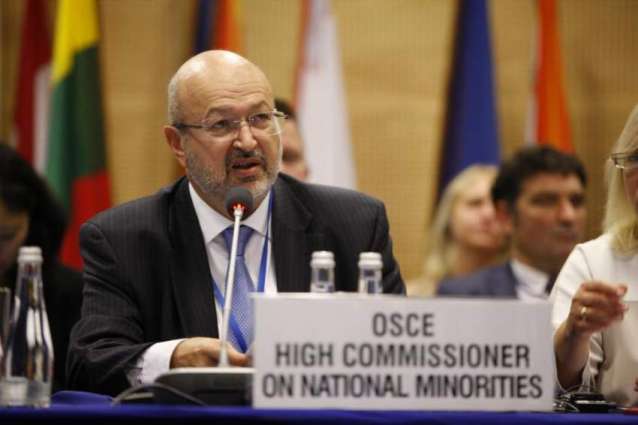The problem of stateless citizens living in the Baltic region has been one of the key issues on the agenda of the Organization for Security and Co-operation in Europe (OSCE), but statistics show that the problem has already become less acute in recent years, OSCE High Commissioner on National Minorities Lamberto Zannier told Sputnik.
MOSCOW (Pakistan Point News / Sputnik - 02nd November, 2018) The problem of stateless citizens living in the Baltic region has been one of the key issues on the agenda of the Organization for Security and Co-operation in Europe (OSCE), but statistics show that the problem has already become less acute in recent years, OSCE High Commissioner on National Minorities Lamberto Zannier told Sputnik.
A large number of people residing in such Baltic countries as Estonia and Latvia who are former Soviet citizens and are usually Russian-speaking were not granted citizenship after the dissolution of the Soviet Union in 1991. As a rule of thumb, stateless people are required to pass a state language exam in order to be granted citizenship.
"This is an issue that is on the agenda of the OSCE and on my personal agenda. Actually I'm going back to Vienna, there will be an event on statelessness in the OSCE, that we organizing together with UNHCR [the United Nations High Commissioner for Refugees], where also [the] Russian Federation will be participating, number of other OSCE countries. I've been discussing this issue and working on it with the countries of the region," Zannier said.
The high commissioner also noted that the issue had become less concerning, especially in Estonia, where more than 30 percent of people were stateless just 25 years ago, while now the figure might be as low as 6 percent.
"So there has been a reduction. There is a citizenship law, which, I think, is a good one, where a newborn is given automatically the citizenship, unless their parents object. It's a good system, that ensures that there is good inclusion," the high commissioner said, adding that the problem involved mostly elderly people.
Zannier noted that the situation was different in Latvia, where citizenship is not given to people at birth, adding that he was planning to hold discussions with the Latvian government on the issue.
"In Latvia there is still a requirement also for the newborns to apply for citizenship, which will be granted. In my view it would be good if also Latvia align itself from the legislative point of view with what Estonia does and maybe make it even easier for the newborn to acquire the citizenship. That would bring down the numbers more," Zannier added.
The commissioner also does not believe that the problem of non-citizens is a political one, saying that it likely resulted from the transition period after the dissolution of the Soviet Union and the fact that non-citizenship has its own benefits.
"I'm not sure whether this is political at all. It's a result of a phase of the transition. The result was also this so called grey passport, which apparently some like, because it gives free travel into the EU and free travel to Russia without visa. It is, especially for older people, a practical way of moving around," the high commissioner said.
Zannier noted, however, that living without citizenship naturally had its disadvantages, as stateless people cannot fully enjoy the rights that citizens have, including voting rights. According to the high commissioner, governments should be encouraged to improve their policies in order to solve the problem of stateless people.




